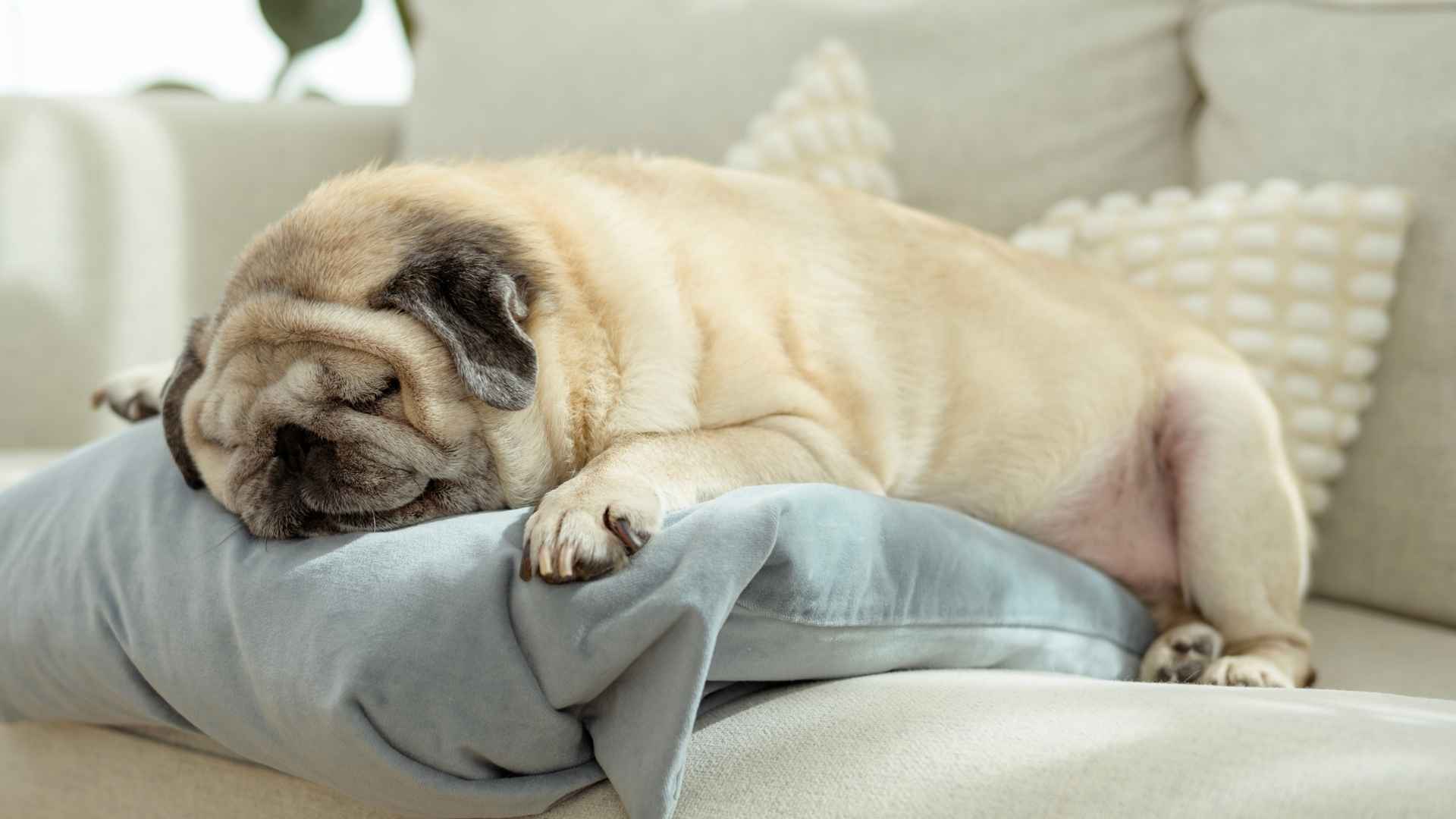Some dogs gently snore their way through dreams of chasing tennis balls. Others, however, turn bedtime into a symphony of rumbling and wheezing that could rival a chainsaw. If you’ve ever shared a room with a flat-faced pup, you already know: cute often comes with a chorus of loud nighttime noises.
Many of the most notorious canine snorers belong to the brachycephalic group, breeds with short snouts and compact skulls that give them their signature squishy-faced charm. But this adorable anatomy comes with a catch. Their narrow nostrils, elongated soft palates, and sometimes constricted airways make it harder for them to breathe smoothly, especially when they’re asleep. The result? Deep, persistent snoring that can echo through the night.
While all dogs can snore from time to time, understanding which breeds are most prone to heavy snoring is important for future pet parents, especially light sleepers. But beyond the noise, it also sheds light on these dogs’ respiratory health. In this article, we’ll uncover the top heavy snoring dog breeds and why their noisy slumber deserves your attention.
Heavy Snoring Dog Breeds
1. Boston Terrier
Don’t let the Boston Terrier’s dapper appearance fool you; this little “American Gentleman” has a reputation for making some surprisingly loud nighttime noises. With their short snouts and wide, expressive eyes, Boston Terriers are a favorite among city dwellers and families alike.
The AKC describes the Boston Terrier as a spirited and cheerful companion, known for its snug tuxedo-like coat, compact yet athletic build, and warm, expressive eyes. But like many brachycephalic breeds, their compact facial structure makes them prone to snoring, snorting, and snuffling, especially when sleeping on their backs.
Health
Snoring in Boston Terriers often stems from their narrow airways and elongated soft palates, common traits in flat-faced breeds. These structural issues can lead to restricted airflow during sleep, resulting in those signature grunts and wheezes. Their snoring may also intensify depending on their sleeping position, which often changes throughout the night.
Raising the dog’s head slightly with a pillow can sometimes help reduce the noise by keeping air passages more open. Additionally, Boston Terriers are prone to several health issues that require close monitoring, particularly with their prominent eyes. Daily checks for irritation and regular veterinary screenings for cataracts, glaucoma, and patellar luxation are essential to maintain their well-being.
Fun Fact: Despite their refined nickname, Boston Terriers are known for their noisy slumber and animated sleeping habits.
2. Boxer
The Boxer is a bundle of energy by day and a symphony of snores by night. This spirited, playful breed is part of the brachycephalic group, known for its short muzzle and flat facial structure.
While their energetic antics might tire them out quickly, their unique anatomy makes Boxers particularly prone to snoring, especially when they doze off on their backs or in positions that restrict airflow.
Health
Boxers’ heavy snoring is closely linked to their facial conformation, which can make breathing more labored during rest. Their flattened snouts limit airflow and, combined with their tendency to sleep in airway-constricting positions, result in loud, persistent snoring. Health-wise, Boxers are susceptible to a number of conditions that require ongoing veterinary care.
These include overheating due to poor temperature regulation, cardiac issues such as Arrhythmogenic Right Ventricular Cardiomyopathy (ARVC), and even certain cancers. Hill’s Pet notes that Boxers are sensitive to high temperatures, so precautions should be taken to keep them from overheating.
Their high energy demands mean they need plenty of exercise, but care must be taken not to overexert them in hot or humid conditions, as their flat faces make them vulnerable to heat stress.
Fun Fact: After a long day of play, Boxers are known to fall asleep in odd positions, leading to snoring sessions loud enough to fill a room.
3. Bullmastiff
Massive, mellow, and undeniably majestic, the Bullmastiff is a gentle giant that trades barking for something a bit more rumbly, snoring. According to WebMD, Bullmastiffs originated in the 19th century as domestic guard dogs, used by gamekeepers to safeguard estates.
They were developed by crossing English Mastiffs with Old English Bulldogs and were eventually recognized as a purebred breed by the Kennel Club. Towering at around two feet tall and weighing up to 130 pounds, this powerful breed is known for its calm demeanor and strong bond with family. But when bedtime rolls around, don’t be surprised if the quiet is replaced by deep, resonant snorts echoing down the hall.
Health
Though not as flat-faced as some other breeds, the Bullmastiff still possesses features that contribute to its snoring tendencies. Its broad, short muzzle and heavy facial folds can partially obstruct airflow during sleep, leading to loud and persistent snores.
Add in their massive frame, and their breathing naturally becomes deeper and noisier. Pet owners should also be mindful of the breed’s susceptibility to several health conditions, including cardiac problems, hip and elbow dysplasia, thyroid imbalances, and gastrointestinal issues like gastric dilatation and volvulus (GDV).
Regular veterinary checkups and awareness of potential bloat symptoms are essential for maintaining this breed’s overall well-being.
Fun Fact: Despite their minimal barking habits, Bullmastiffs are known for snoring so loudly, their snoozing can be heard throughout the house.
4. Cocker Spaniel
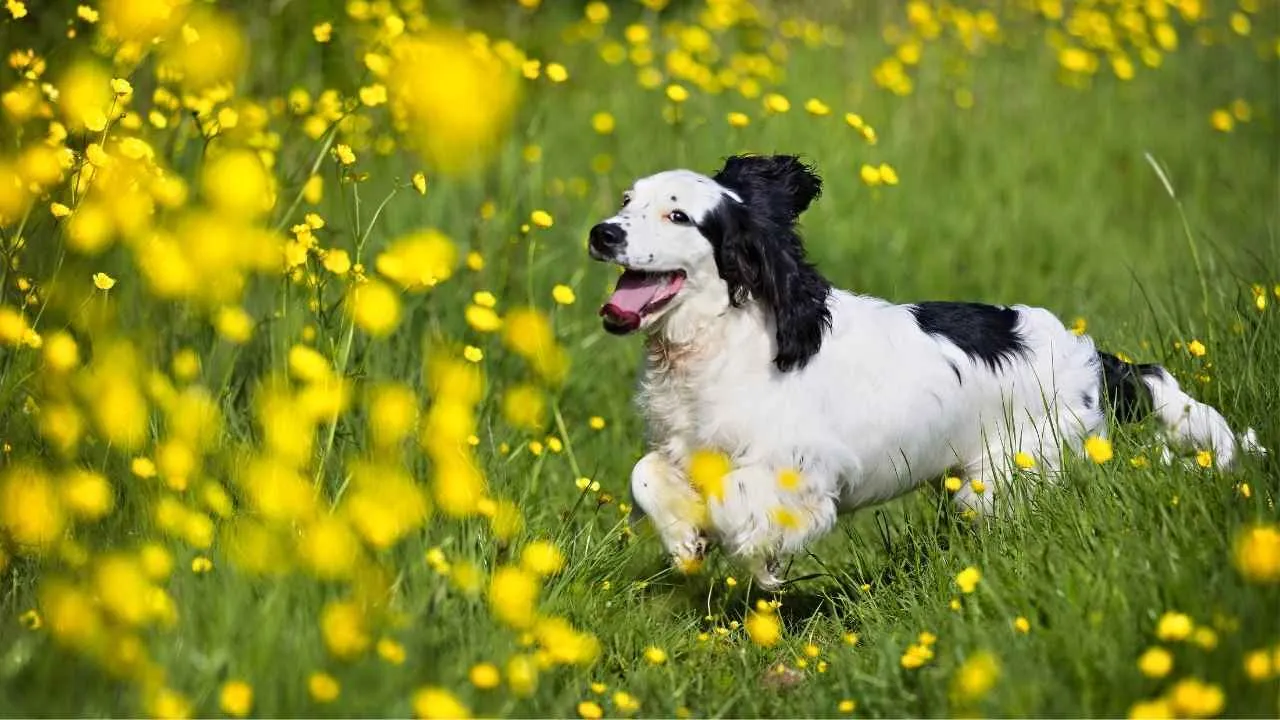
The cheerful and affectionate Cocker Spaniel may be best known for its expressive eyes and silky ears, but this charming breed also has a tendency to snore. Originally developed as hunting dogs, Cocker Spaniels have become beloved companions thanks to their friendly nature and manageable size.
However, their anatomy, combined with potential weight gain, can lead to disrupted nighttime peace, especially when they settle into certain sleep positions.
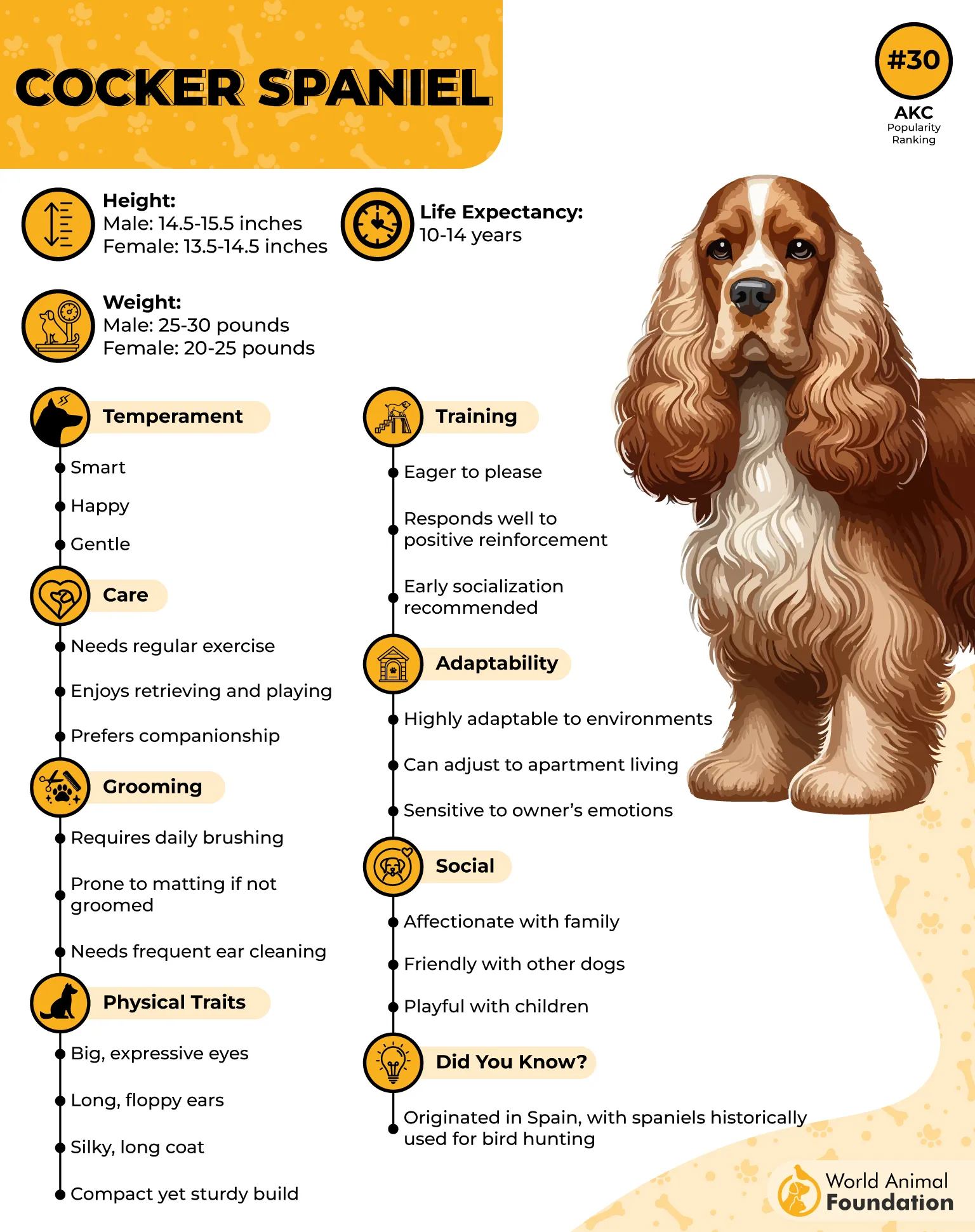
Health
Cocker Spaniels can be prone to heavy snoring due to their relatively narrow airways and physical features like droopy jowls and long ears, which can partially block airflow during rest. Obesity, a common issue in this breed, can further increase the likelihood of snoring by adding pressure on the respiratory passages.
Health-wise, Cocker Spaniels are also susceptible to a variety of concerns, including progressive retinal atrophy, hip dysplasia, and chronic ear infections. Otitis, in particular, is common due to their long, floppy ears and requires regular ear care to prevent inflammation. Maintaining a healthy weight and monitoring for any respiratory issues can help reduce snoring and improve overall well-being.
Fun Fact: The Cocker Spaniel once held the title of America’s most popular breed, adored for its playful personality and lush, pettable coat.
5. French Bulldog
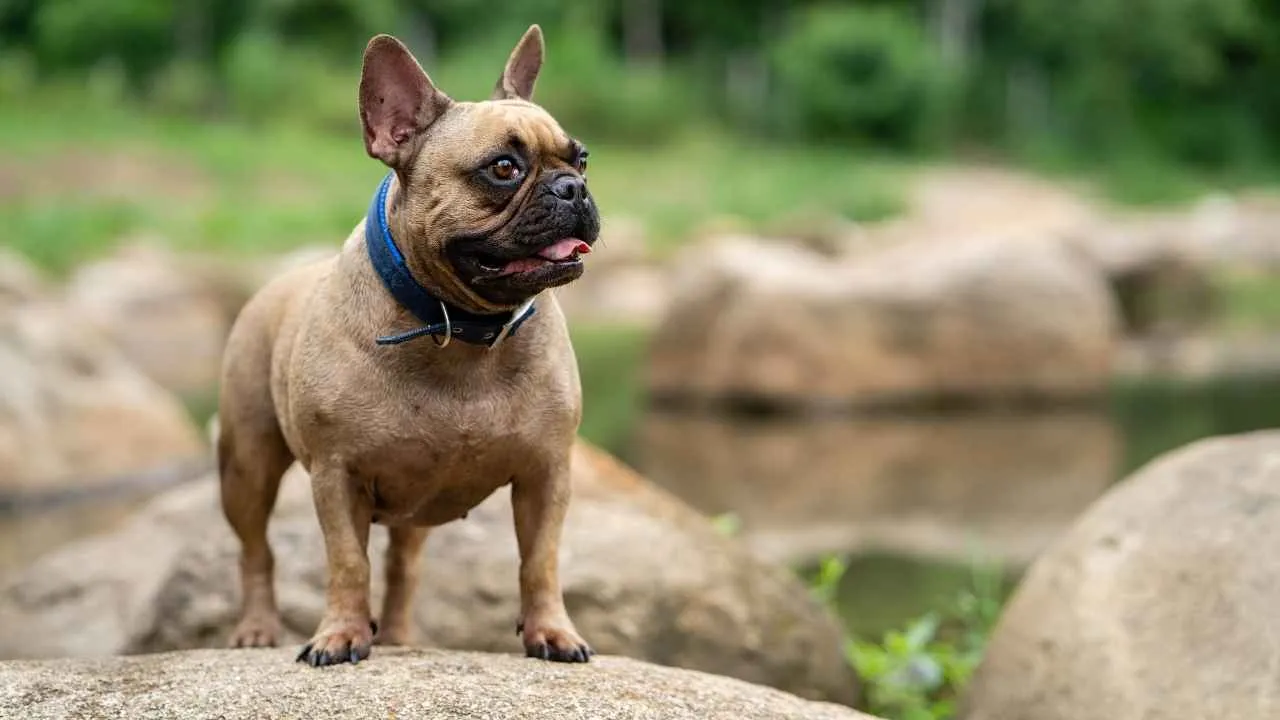
The ever-charming French Bulldog may have claimed the top spot as America’s most popular dog, but this pint-sized companion brings more than just cuddles and charisma to the table; expect a nightly concert of snorts, snores, and wheezes.
Thanks to their compact size and affectionate nature, Frenchies are beloved apartment pets. However, their signature flat faces make them one of the noisiest sleepers in the canine world.
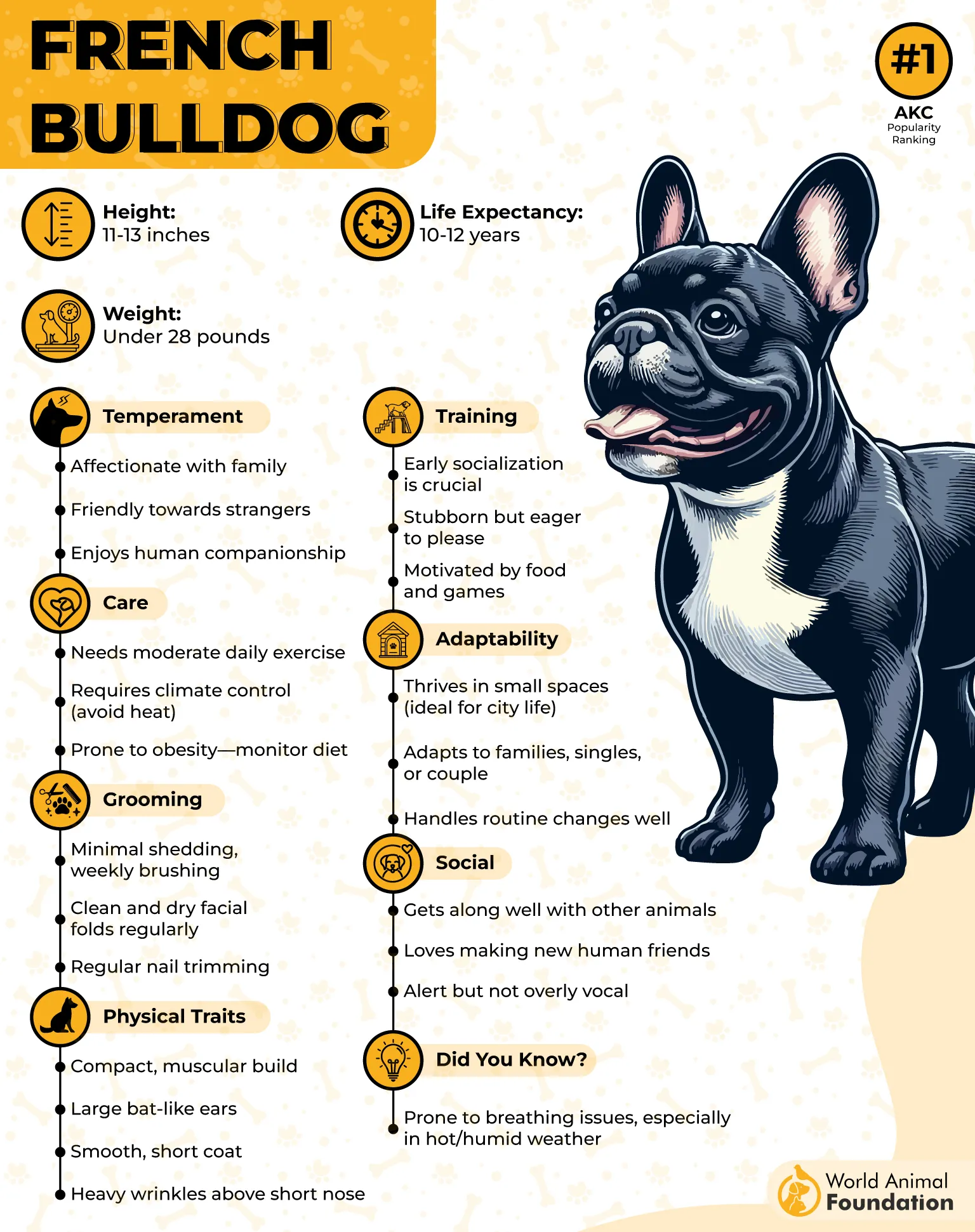
Health
Heavy snoring in French Bulldogs is largely linked to their brachycephalic anatomy. Their narrow nostrils and elongated soft palate often result in restricted airflow, which creates loud respiratory sounds, especially during sleep.
In addition to their physical traits, Frenchies are also prone to allergies and chronic respiratory issues, both of which can amplify snoring. It’s important to monitor their breathing and avoid exposing them to extreme heat or humidity. Regular veterinary checkups, along with choosing a reputable breeder, can help reduce the risk of severe health complications and improve overall well-being in this lovable breed.
Fun Fact: In 2022, the French Bulldog overtook the Labrador Retriever as the most popular dog breed in the U.S., ending a 31-year streak.
6. Labrador Retriever

Known for their unwavering friendliness and boundless enthusiasm, Labrador Retrievers are a staple in households across the globe. Although they don’t fall under the brachycephalic category, Labs are still no strangers to nighttime snoring. Their large size and tendency to pack on extra pounds can make them more likely to snore, especially when airway pressure increases during rest.
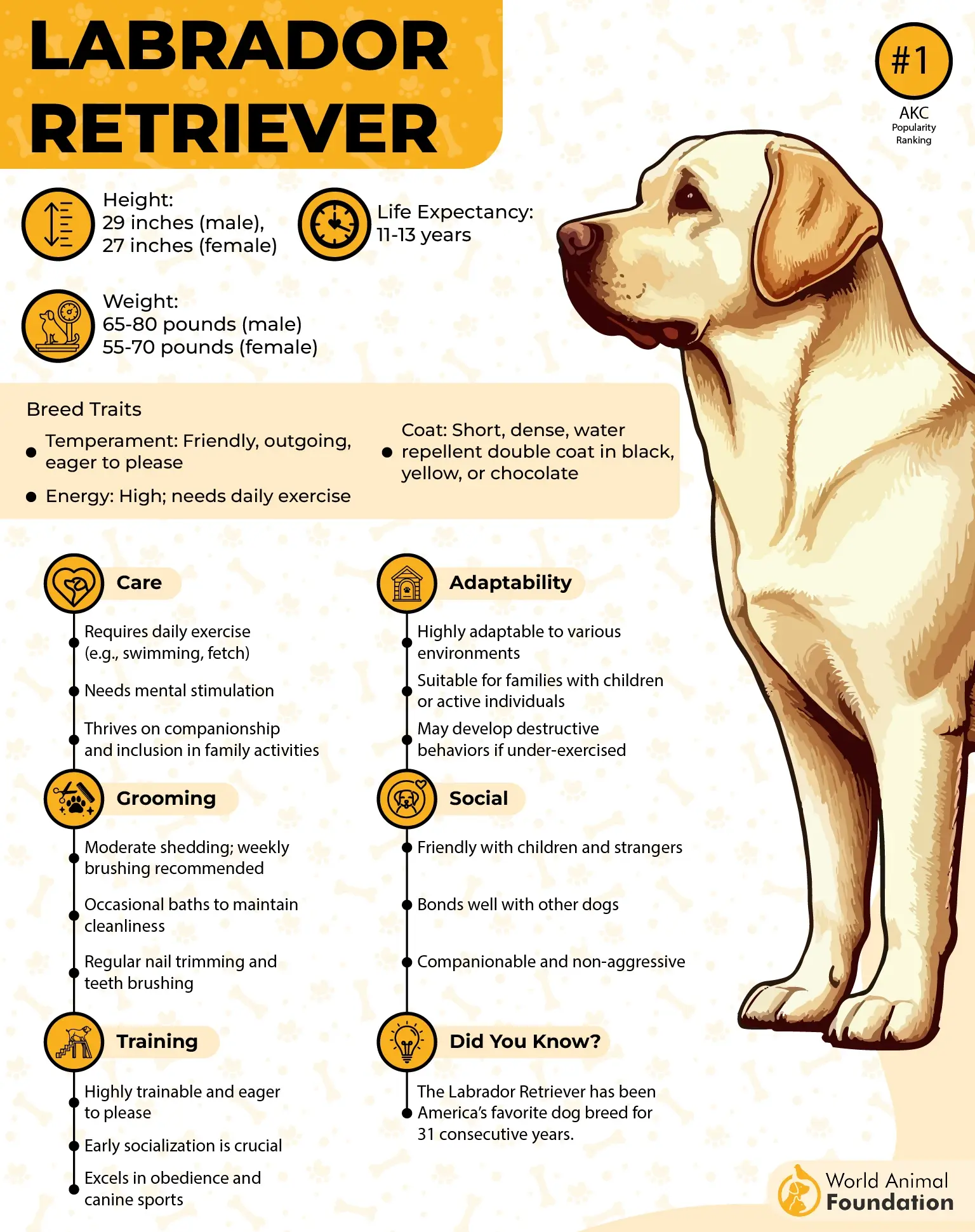
Health
The Labrador Retriever’s snoring often stems from lifestyle and health-related factors rather than facial structure. Excess weight is a common culprit, as it can place added pressure on the throat and narrow the airways, resulting in louder, more persistent snoring.
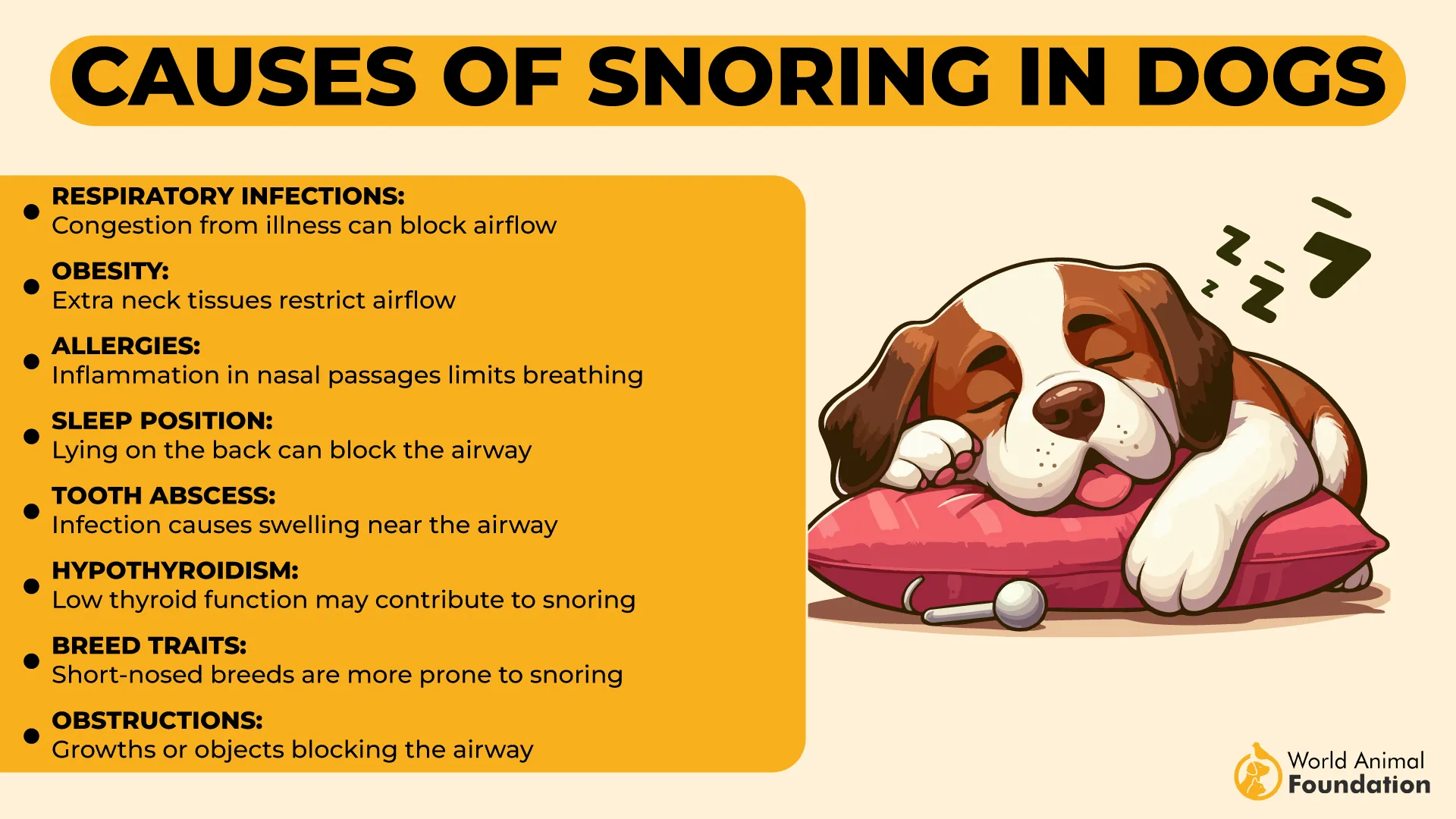
Labs are also susceptible to allergies and sinus congestion, which may further disrupt airflow while they sleep. To keep a Labrador breathing easily at night, a balanced diet, regular exercise, and weight management are essential.
Health screenings for issues such as hip and elbow dysplasia, hereditary myopathy, and progressive retinal atrophy are also recommended. Choosing a reputable breeder who prioritizes health and proper body structure can help reduce future complications.
Fun Fact: Despite not being flat-faced, Labradors often snore due to excess weight or sinus problems rather than their anatomy.
7. Pug

With their round eyes, curly tails, and perpetually wrinkled smiles, Pugs are full of charm and full of noise. Known for their comical personalities and affectionate nature, these small dogs make a big auditory impact.
Their trademark snorting, snuffling, and especially snoring come from their compact facial structure and short nasal passages, which make airflow a challenge, particularly when they’re resting.
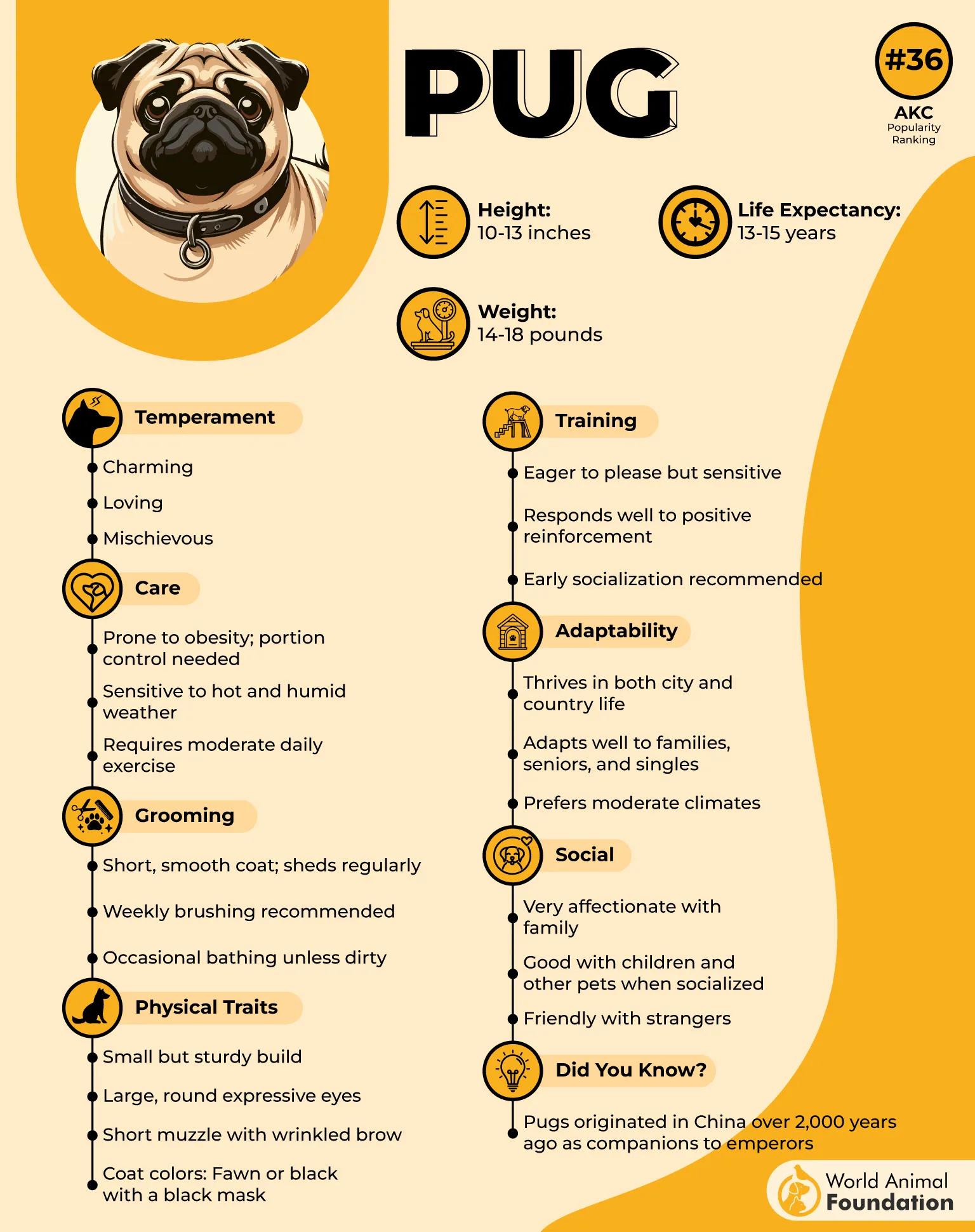
Health
Pugs are one of the most recognizable brachycephalic dogs, and their loud nighttime breathing is a direct result of their anatomy. The flattened muzzle, narrow airways, and facial skin folds often lead to restricted airflow, making snoring almost inevitable. These breathing difficulties can also increase their risk of heat stroke, especially in warmer climates.
On top of respiratory concerns, Pugs are prone to a variety of health issues, including brachycephalic obstructive airway syndrome (BOAS), eye ulcers, skin infections, and dental problems. Regular vet visits, careful grooming, and managing their weight are all critical to keeping a Pug healthy and comfortable, particularly to ease the breathing issues that cause their heavy snoring.
Fun Fact: You’ll never lose track of a Pug, even in sleep; their loud snoring makes sure you always know where they are.
Conclusion
Dog snoring may seem like a minor quirk at first, but for many breeds, it’s a nightly performance rooted in their unique anatomy. From the expressive Boston Terrier to the ever-charming Pug, heavy snoring is often a result of compact skulls, narrow breathing passages, and elongated soft palates. These structural traits, common in brachycephalic dogs, create airflow restrictions that cause the rumbling, grunting, and wheezing sounds we associate with their sleep.
Understanding which breeds are more prone to this behavior helps potential owners prepare for the realities of living with a snoring pup. Whether it’s the Pug’s charming snorts or the Boston Terrier’s shifting sleep positions, each dog has its own soundtrack. But it’s not just about the noise, these breathing challenges can impact the dog’s overall health and quality of life if not managed with proper care and veterinary oversight.
If you’re considering a breed like the English Bulldog or Shih Tzu, other well-known snorers not covered earlier, it’s important to provide a supportive sleeping environment and prioritize regular health check-ups. With attention to their specific needs, even the loudest sleepers can live comfortably while keeping their beloved snoring a part of their endearing charm.


